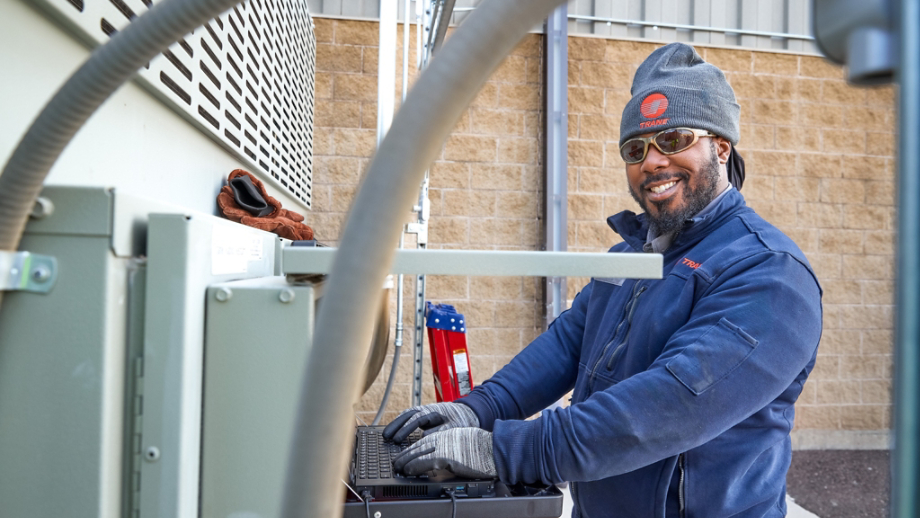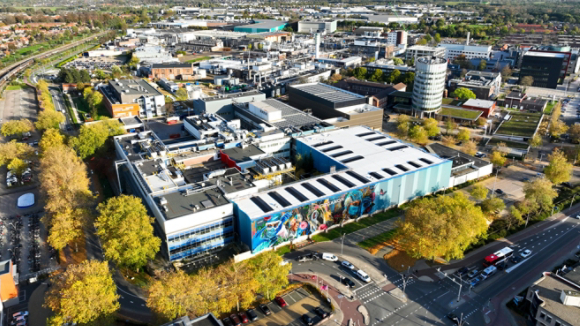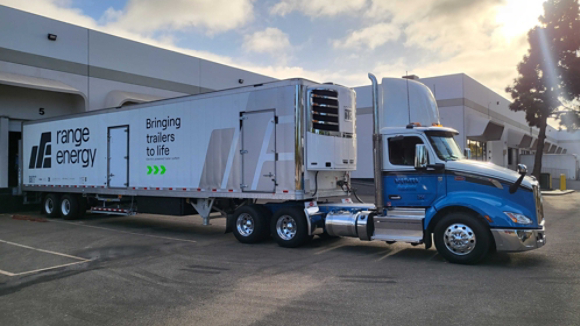May 05, 2025
Innovating for Impact: Next Generation Refrigerants for a Sustainable Tomorrow
We’re leading the HVAC industry’s transition to low global warming potential (GWP) refrigerants, reducing environmental impact while providing the same expected comfort and performance.


Project At-a-Glance:
The opportunity:
Shifting to low global warming potential (GWP) refrigerants is essential for reducing emissions in homes and commercial buildings, accelerating global decarbonization.
The solution:
Proactively transitioning to refrigerants with a GWP below 700, reducing global warming potential by 78% through:
- HVAC equipment redesigned to optimize performance and efficiency
- Advanced refrigerant leak detection technology
- Extensive customer education and stakeholder support
Sustainability outcomes:
Significantly reducing greenhouse gas emissions from HVAC systems while enhancing energy efficiency, contributing to a more sustainable future without compromising system performance and customer comfort.
Investing in more sustainable solutions
From homes to commercial buildings, heating and cooling systems play a vital role in global sustainability. Many legacy refrigerants used in HVAC systems contain hydrofluorocarbons (HFCs), which have thousands of times more warming potential than carbon dioxide.
Shifting to sustainable alternatives was essential, and legislative deadlines had been established to ensure industry compliance. However, Trane Technologies didn’t wait for legislation to take effect to take action. For over a decade, the company invested in research and development to identify next-generation refrigerants that would deliver comparable or improved performance while dramatically reducing environmental impact. Guided by a proactive, research-driven approach, our findings led us to confidently switch to low-GWP refrigerants well ahead of regulatory deadlines.
"As a global climate innovator, we're continually on the leading edge of new, sustainable technologies, and have proudly led the industry in the transition to next-generation refrigerants," said Dwayne Cowan, president, Residential HVAC, Trane Technologies.
Setting new standards for performance and safety
The refrigerant evolution is about more than compliance. It is about reimagining what’s possible in HVAC technology.
To successfully integrate the low-GWP refrigerants, Trane Technologies redesigned our equipment, ensuring that functionality, energy efficiency, comfort and reliability remained uncompromised.
Beyond performance, safety was a top priority. We incorporated factory-installed refrigerant detection system technology on most units, ensuring early identification of potential leaks and enhancing safety. These advanced detection systems provide building owners and facility managers with peace of mind, knowing that their HVAC systems were designed not only to be efficient but also safeguarded against potential risks.
By taking this approach, we not only ensured compliance with environmental regulations but also raised the bar for the entire industry, proving that sustainability, performance and safety can work together.
As a global climate innovator, we're continually on the leading edge of new, sustainable technologies. We have proudly led the industry in the transition to next-generation refrigerants while providing customers the same comfort and performance they have come to expect from Trane Technologies.

A comprehensive effort for a smooth transition
A refrigerant transition of this scale requires collaboration, education and support. To ensure success, we launched comprehensive educational programs, including:
- Interactive webinars
- In-depth FAQs
- Instructional videos and training
- An online resource hub for distributors and contractors
- Homeowner-facing content, including a dedicated web page
These resources equipped customers and industry professionals to confidently adopt low-GWP refrigerants.
A lasting commitment to sustainability
Implementing a phased approach to low-GWP refrigerants helped ensure a smooth transition across commercial and residential product lines, allowing businesses and homeowners to adopt eco-friendly solutions with confidence.
Our Gigaton Challenge, a commitment to reducing customer emissions by one billion metric tons by 2030, underscores our dedication to bold, measurable environmental stewardship. "Coupled with our advancements in energy efficiency and clean technology, this refrigerant transition will play an integral role in achieving our Gigaton Challenge," said Cowan.
By acting ahead of regulations, investing in breakthrough technology and prioritizing education and collaboration, Trane Technologies is helping customers transition to sustainable solutions without sacrificing performance or efficiency.
Topic Tags

 English
English



















